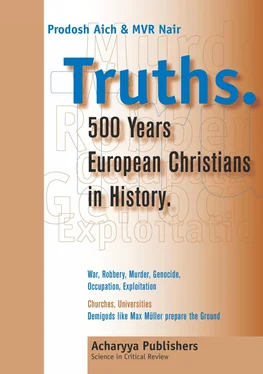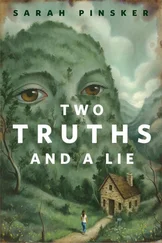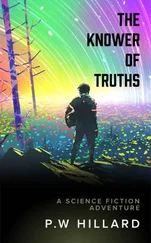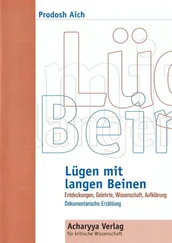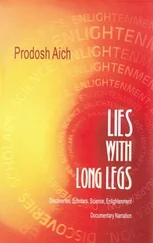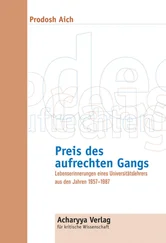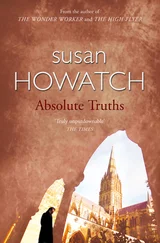The first recorded realencounter of European Christians with India goes back to the beginning of the 16th century. The “ Thomas Christians” a few hundred years earlier, were immigrants in the south of Bharatavarsa. They never went back to Europe. Vasco da Gamawas the next. Vasco da Gamaand the “ Vasco da Gamas”do not arrive in India on foraylike Alexander the Macedonianor quite a few Islamic ruffians; they are on warand lay the foundation of foreign occupationof “India”, along with the Christian Orders of the Vatican in Goa.
Yet, whatever is known about this ancient cultural heritage of Bharatavarsa in our time is not conveyed in Latin or in Portuguese languages. These are conveyed mainly in the English language. This is so in today’s India as well. Most of the authors of those books are Europeans Christians from British “United Kingdom”. The questions arise inevitably, why in English and how these authors writing in English or in some other contemporary European languages could know about the ancient cultural heredity of Bharatavarsa? Did they learn the Vedic, Sanskrit, Prakrit or Pali languages? Where, when, from whom, for how long?
The knowledge accumulated in Bharatavarsa in course of time immemorial is stored in the Vedas, Upanishads, Puranas, Sutras, Brahmanas and the likes, either in the Vedic language or in the Sanskrit language. Before the creation of scripts these treasures were preserved in oral-tradition. The oral-tradition exists also in today’s India, parallel to the written-tradition that emerged logically much later than the oral-tradition. The parallel existence of oral and written tradition has preserved the ancient books undistorted.
At least three gulfs have to be bridged before one reaches the treasures stored in the Vedic language and the Sanskrit language. The modern European languages have emerged recently. There is an immense gap in terms of time. Another gap is in terms of the difference in culture. Third gap is in terms of the differences in depth and richness of these two sets of languages, the Vedic language and the Sanskrit language in one side, and the European languages on the other. Were these divides bridged? How could these divides be bridged?
All major European Christian authors have, however, claimed that they translated the Vedas, Upanishads, Puranas, Sutras, Brahmanas and the likes from the original “Sanskrit” language. The Vedas are composed in the Vediclanguage. The Sanskrit language is post-Vedic. Well, we may let this ignorance regarding the Vedic language be.
But how do they overcome those three Gulfs? Apart from the issues of their ignorance regarding the Vedic language, their efforts bridging the Gulfs, it has then to be explicated at least where, when, from whom and for how long these European Christian authors had chances to learn this obscure foreign language calledSanskrit.
The next issue is to scrutinise the life-career of those European Christian authors individually, beside Max Müller, who handed-down the accumulated knowledge in Bharatavarsa to their fellow European Christians in European languages. This may appear to be an easy undertaking whenever one gets into a “modern” library. There are so many books and plenty of reference booksin the libraries introducing and specifying those individual European Christians who are credited accomplishing this difficult performance. But is it so? How reliable are these printed papers?
It is, de facto , not an easy undertaking to scrutinise all those printed papers. One has to demand proofs for almost each sentence. These readily available references books in the libraries do not disclose their sources. Therefore it is needed to search for primary sources in the archives. Whenever primary source is absent, the only conclusion would be that the version that has been scrutinised is a fake.
The readily available reference booksdo not stand this test. These books are deceptive packages. These books are not authentic. These books do not carry truths. Arriving at this point one has to search for sources, for primary sources, look into the bio-data of those individual European Christians in details to collate their writings to their bio-data. One has to collate each and every “fact” in the reference books with original documents. This has to be learnt by own experiences. We, the authors of this book, have undergone this toilsome process.
Scholars belonging to this culture have never learnt to question their celebrated “intellectual giants” whether, where, for how long and in which educational institutions they acquired their claimed qualifications and abilities to read and understand the books written in the Vedic or in the Sanskrit languages. We, the authors of this book, have questioned these celebrated “intellectual giants” decorating the reference books. What were their sources? Did they critically check their sources? Or were they just “imaginative”?
These are the issues dealt in this book. The results of scrutinises presented in this book are based on documented primarysources only. The logic is simple and straightforward. Any deliberation which cannot be traced back to a primary source, and the referred primary source cannot stand the test of its validity, is faked. It is a tiresome searching job no doubt. But this hardship is necessary. This book is a proof that most of the secondary sources do not carry historical truths even in parts. The consequent application of this simple and straightforward method of search and re-search has banged on the box of Pandora.
This book opens up the whole panorama of swindles of the prevailing Era of Vasco da Gama. This Erais rooted in the declaration of Waron the rest of the world by the European Christians in the 15th century. This declaration of Waron the rest of the world is documented by two Papal Bulls.
A Waris never an end in itself, never a self-purpose. A Wardoes never fall from the blue. A Waris always planned and triggered by the better equipped power to gain economic power at the cost of others. A Wardoes never come to an end before the better equipped power wins. Or the better equipped power loses. There are always losers and winners. No exceptions.
This book looks back to the beginning and looks into the continuous Warfarestill going strong. The authors call this war to be the World War I, which is marked by relentless robbery, rape, murder, genocide, occupation, extensive exploitation and sustained exploitation!
The authors apologise for using their simple, straight, undiplomatic, academically unusual language; and also for continuous references and reminders to hard facts. It might appear that certain hard facts are being repeated. It is not exactly so. The repetitions of identical facts are not just repetitions; these repeated identical facts open up other panoramas, many other perspectives, in different contexts. They become more comprehensive vis-a-vis new contexts.
The contents of documented primary sources are exactly cited and are not just reproduced in parts or narrated. Our book does not intend to be entertaining, does not intend to make anybody believe anything, but to unveil truths, removing rubbish and dirty covers, layers after layers, which have been deliberately thrown.
Along with the rigorous scrutiny of Max Müller’s biography, allother demigods and the major actorsin this celebrated gallery are also taken under rigorous scrutiny with their economical, political and cultural background as well as their social settings. The box of Pandora is thus wide open.
Читать дальше
